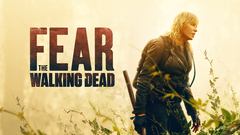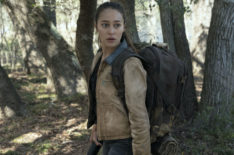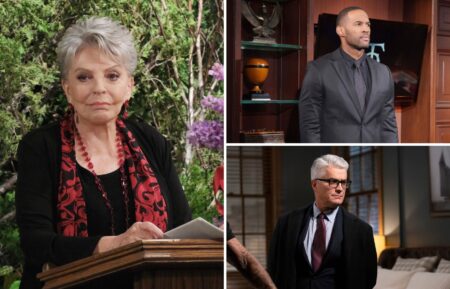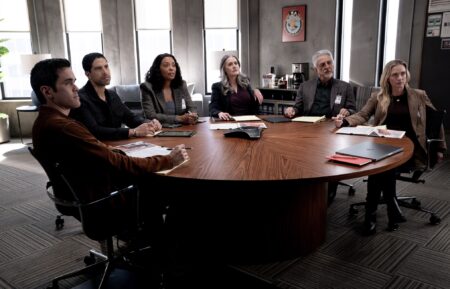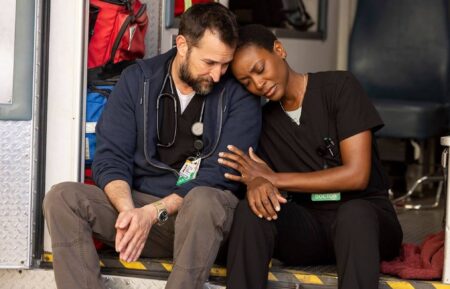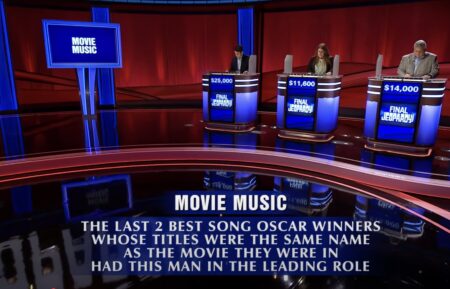‘Fear the Walking Dead’ Bosses Explain That Big Death in the Season 6B Premiere
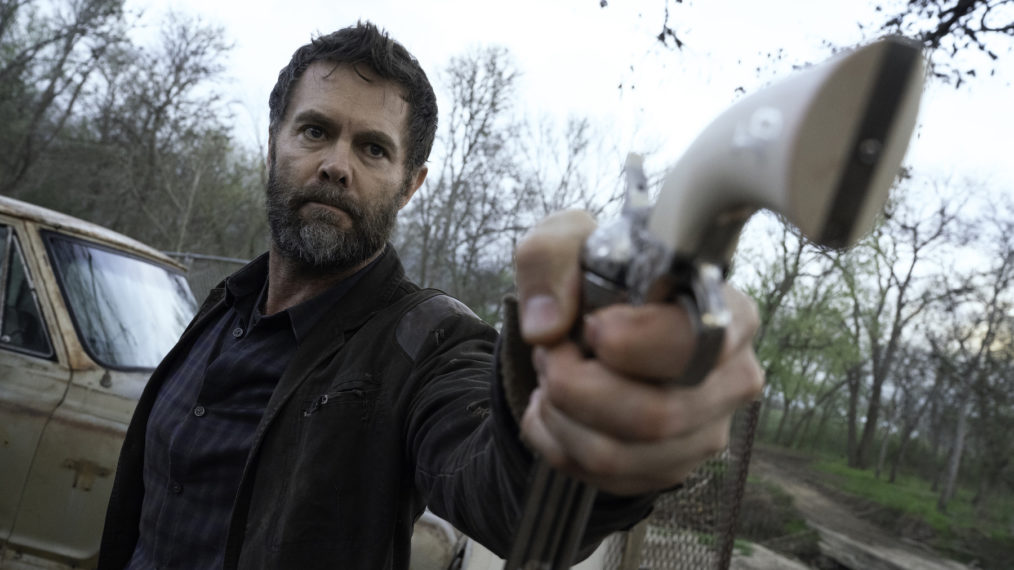
Q&A
[WARNING: The following contains MAJOR spoilers for Fear the Walking Dead Season 6, Episode 8, “The Door.”]
Say it ain’t so! AMC’s zombie apocalypse spinoff Fear the Walking Dead wasted no time offing one of its most beloved characters when the series resumed Season 6 after months of hiatus. Skilled sharpshooter and self-proclaimed sweet tooth, John “like the fish” Dorie (Garret Dillahunt) met his end after more than one close call (the episode opens with John contemplating shooting himself). Eventually, though, it turned out to be big bad Virginia’s (Colby Minifie) little sister Dakota (Zoe Coletti) who did the honors — shooting him at close range in the heart after John discovered that Dakota was the real culprit behind Lawton’s murder case.
It was a devastating episode, with lots to unpack. So, we spoke with executive producers and co-showrunners Andrew Chambliss and Ian Goldberg to discuss the harrowing hour, just what was the deal behind the constant doors, and what’s on deck for survivor Morgan (Lennie James) and Dakota next.
When we pick up, John, usually a ray of sunshine with sweets for everyone, is contemplating suicide. Why did you decide to start Season 6B this way?
Andrew Chambliss: It really was about taking John to the lowest we’ve seen him. We really wanted to see the emotional toll that Virginia’s reign has exacted on all of these characters. And the best way to do that was to continue John’s descent into darkness. Virginia’s broken one of the most optimistic characters we’ve had, the character who has been the light at the center of this group, and it really was about showing how dangerous someone like Virginia can be if she’s able to break someone like John.
Definitely. Dakota shooting John really took me by surprise — it was a major gasp moment. Do we have a budding serial killer on the horizon? Or is Dakota really convinced she has no other choice as she commits these murders?
Ian Goldberg: We should be worried about her because we’ve seen now that she’s dangerous and she’s not afraid to shed blood, whether it was through Cameron [Noah Khlye] and now through John. I think what makes Dakota so tragic a figure is, there is a streak of her that is very much sociopathic in terms of the way she views the world and views life and death and killing. She says to John before she pushes him off the bridge, “It doesn’t always have to mean something.” That’s an incredibly cynical and nihilistic way to look at the world. But I think what makes her sympathetic and dimensional, and is also a credit to Zoe, who is such a fantastic actress, is that she’s a product of her upbringing. She is a child of the apocalypse, and of Virginia’s communities. When you grow up with Virginia as a role model, it skews your morality. So while we definitely don’t agree with her actions, she’s not a monster. She has a lot of tragic qualities that we’ll continue to see more of as the season goes on.
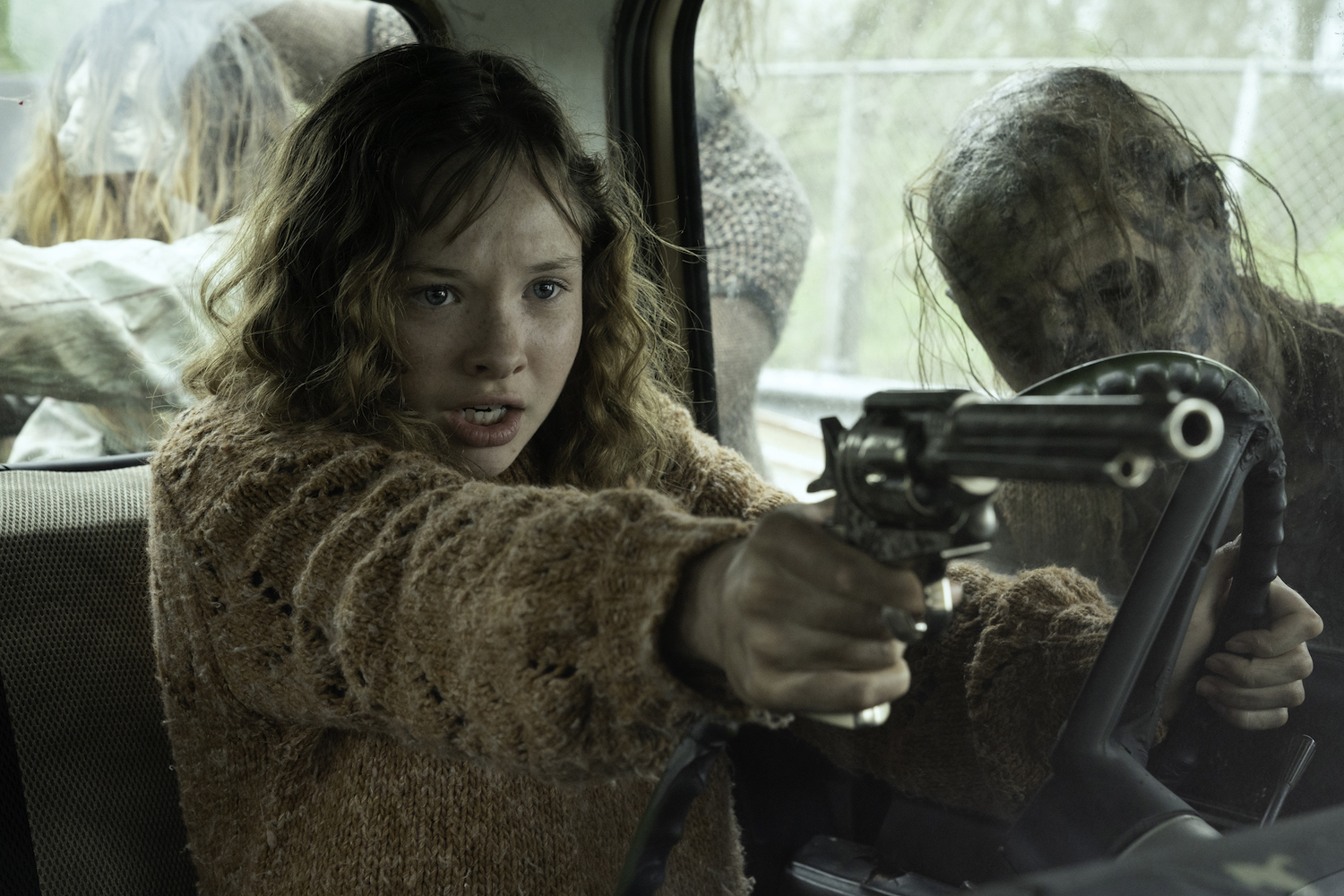
Zoe Colletti as Dakota (Ryan Green/AMC)
John has this moment of underwater clarity in the river — and by the time he’s up above the water again he says, “it’s not too late.” Is that his ‘I must get back to June’ moment?
Chambliss: It really was about taking him on his own journey within the episode. We started the episode with him at his darkest as he’s contemplating taking his own life, and we wanted to bring him full circle and have him see the light again, see that shimmer of optimism that so defines John and who he is. He has that moment when he sees the photo of his father at the bottom of the water bed and that gives him the shot of adrenaline that he needs to fight to live, and him coming to the surface and saying, “it’s not too late,” is him turning back towards that optimism and fighting with everything he can to get back to June.
I think that moment is twofold — we really wanted the audience to believe that perhaps he could live, so that when he washed up on the banks of the river near his cabin and June came running down to him, as his hand moved and he reached up that maybe, just maybe, it was John alive. And ultimately it wasn’t, but I think that moment where he says “it’s not too late” is also a thematic representation of this season, the show, what it’s trying to say, that as dark as things can get, as difficult as this world can be, it’s not too late for any of these characters. Even though John does not survive this episode, that message is going to be something that will carry forward. Whether the other characters will heed it is another question, but that is definitely something that John’s going to leave behind in his wake.
We also learn that Dakota saved Morgan in order to kill her sister. Can you tease how that will play out next week?
Goldberg: One thing we’ve been building toward with Morgan and something he’s been wrestling with is why did he survive. Why did he live, after that night at the Gulch when Virginia shot him? And he’s been carrying around this letter wondering who saved him. He’s struggling with what his purpose here is, but he comes to believe it’s about building this community and reuniting his family. For Morgan, to get the answer that the person who saved him is Dakota, and he’s realizing this at the same time he realizes that she just shot his best friend and that she saved Morgan in order to kill Virginia, that throws Morgan into a tailspin. That’s a very different reason than he thought [as to why] he’s still alive, and he’s going to have to reckon with that in [Episode 9], and I think we’re going to see that question of, what Dakota wants for Morgan and what Morgan wants for Morgan really come into collision [next week].
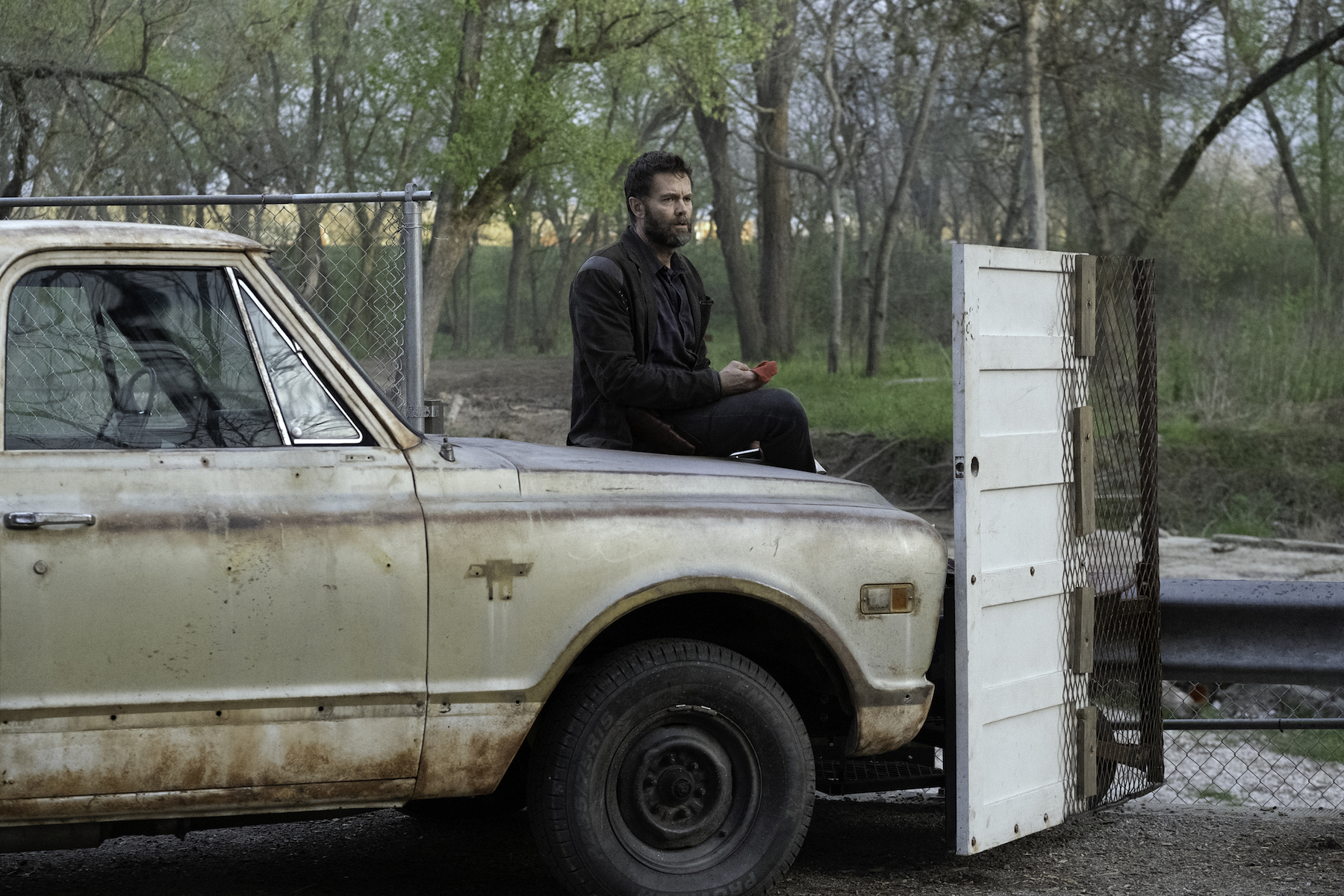
Garret Dillahunt as John Dorie (Ryan Green/AMC)
This episode was called “The Door.” Obviously, doors are very present in this episode. John talks about using it to keep the past locked up, and we see them use doors on the truck and John steals one Titanic-style to float down the river after he’s shot — what would you say was the symbolic intention behind the door?
Chambliss: I think so much of the stories that John has been involved in have been about people who have turned away from the world, starting with John [himself]. He’d locked himself up in that cabin because he couldn’t deal with something that he did in his past. June, when she washed up in front of the cabin, she was running from the world. Morgan was running from the world. For us, it was really a symbol of what John Dorie was all about — helping people open themselves back up to the world again. That’s what the arc in this episode was about for him. Opening the door again, seeing the hope. And it felt like that door, having a presence throughout the episode, it just felt like an apt symbol for what his emotional journey was for the episode, and across the episodes that he’s been in throughout the show.
Fear the Walking Dead, Sundays, 9/8c, AMC
